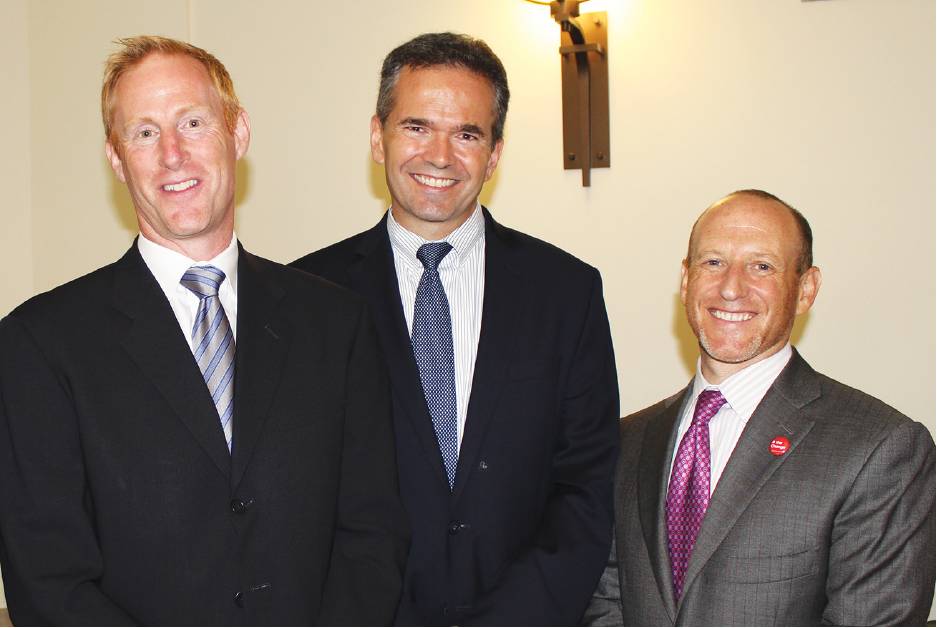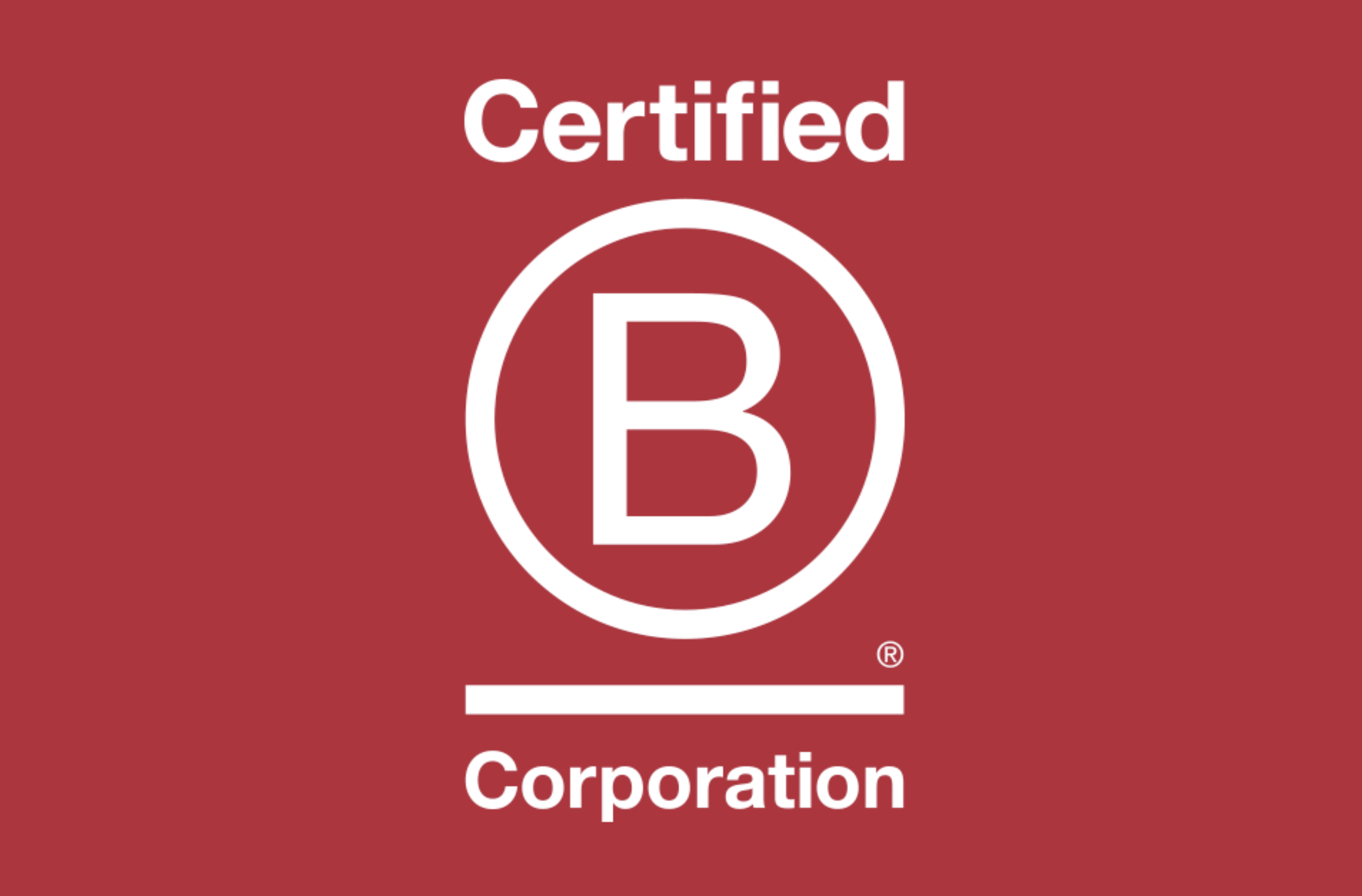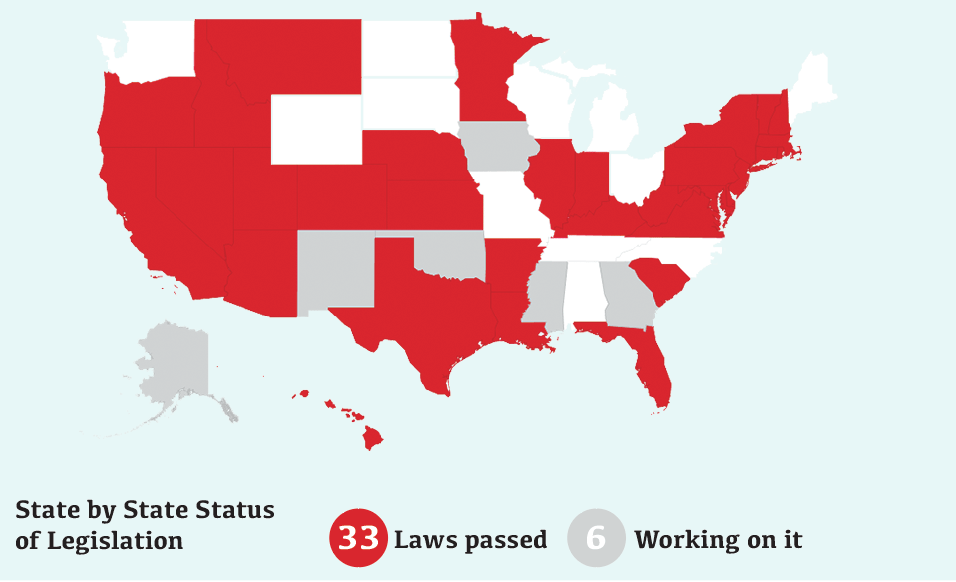A Certified Benefit Corporation, or B Corp, is a business that has been officially certified by the nonprofit B Lab as having met rigorous standards of environmental and social performance, accountability, and transparency. The certification is akin to what organic certification is to produce or what LEED certification is to buildings. However, B Lab takes a holistic perspective and assesses all aspects of a company, from its environmental and social impact, to its corporate governance and community involvement. When you see the Certified B Corp logo, you know that you are purchasing from a truly sustainable company that does good, rather than one that is simply good at green marketing.
See also: What’s the Difference Between a B Corp and a Benefit Corporation?
Meghan French Dunbar: I feel like we need more organizations like B Lab. I think it is one of the most revolutionary ideas that I’ve heard of. How did you come up with such a revolutionary idea?
Jay Coen Gilbert: Well, the thing is, I would like to have a revolutionary idea too, but I’ve never had one (laughter). This is less the story of an individual epiphany than it is of a slow, crowd-sourced awakening. What has become the B Corp movement is really the product of the wisdom of hundreds of different companies and investors and academics and thought-leaders who all collectively identified the need for a set of standards that would differentiate companies that really walk the talk from those that are just talking a big game.
MFD: I think one of the scariest things for people who are starting a new venture is making the decision to go for it. How did you make that decision to just start going for it?
JCG: I am blessed with no fear of failure. Both of my parents were entrepreneurs, and so I have that in my DNA. I recognized that the worst thing that can happen is that I’d fail miserably and then I would learn from that and go on to a better idea. Myself and the other two co-founders of B Lab were all fortunate enough to have had some success in the private sector in our first careers. So, I had the luxury of being able to take a big swing on a big idea. With all of our time and all of our talent and some of our treasure, we decided to put it all behind an idea that came from the community and see how we could be put to the highest and best use. The idea was how to create a nonprofit organization to help lift up this whole movement of business as a force for good.
It was the community that identified the need for performance standards and the community that identified the need for a legal structure that supported the maintenance of a company’s mission over the long-term. It was the community itself that said that the only way to do that is through radical transparency, because we all can’t do everything perfectly. It’s a combination of those three things – performance standards, legal structure, and transparency – that make and distinguish what it is to be a B Corp. We just sort of pulled those threads together into something relatively coherent that could hopefully cut through a lot of the clutter. When everybody claims to be a conscious company, it is hard to know who is for real. B Corp certification helps you identify those companies that are not just conscious in their words, but conscious in their deeds.
MFD: In 2006 this was an idea that, at its inception, was not widely popular. I’m curious if there were any strategies that you used for bringing something that was not in the mainstream to something that now, eight years later, has over a thousand companies participating and is becoming more popular?
JCG: I think that the biggest key for us was, as business leaders ourselves, investors ourselves, and entrepreneurs ourselves, who wouldn’t as individuals necessarily identify with a green movement or CSR movement or sustainability movement in our prior lives, we didn’t show up to this with a lot of baggage. We had only our very pragmatic sense of, “Let’s figure out what works,” and then support that and be very experimental about what we are doing. Hence the name B Lab, where we are making a bunch of experiments; a bunch of them won’t work and we will discard those things that don’t work and go forward with those that do.
One of the things that has been an Achilles’ heel of this movement in its first twenty or thirty years has been that it is often more defined by what it stands against than what it stands for. So the first principle at B Lab and of the B Corp Community is that we stand for something, not against anything. So, showing up in the world and celebrating those folks that are leading, while creating paths for those who are interested in following and plotting their own journeys, has been very effective because we are not running around wagging our finger at a bunch of people who are not doing what we would like them to do. We are just celebrating those people that are doing amazing things that we’d love other people to know about. I think that the biggest thing was making sure that this was a community that is standing for something, not against something.
The second thing is that we stand for business. We think that business is the most powerful man-made force on the planet and we are only just awakening to what its latent potential is to solve some of our most challenging problems. As this next generation of entrepreneurs and investors awaken to that potential, we want to create easy paths for them to follow, either with a corporate structure that supports their mission, or with tools, best practices, and resources to measure their progress on the path to being a truly conscious business. Through the certification, we provide a way for those businesses that are truly leading to be recognized as the leaders that they are and thereby attract the talent and the capital and the evangelical consumers that they need to build thriving businesses. I think that by making sure that everybody recognizes that they have a role to play in this transformation and this evolution of capitalism, we can help accelerate a positive evolution, which is our mission.
MFD: You’ve had a successful for-profit venture with AND1 and now you are one of the leaders at a successful non-profit. What do you consider to be the characteristics of a quality leader?
JCG: For me, the most important thing about leadership is recognizing that the team beats the individual every time. The most important thing that I’ve experienced as someone in a leadership position is the recognition and the humility that you can’t do all of this yourself – you are not smart enough and there are not enough hours in the day, and you don’t have enough clarity of vision. To me, it is crucial to recognize that what you need is a leadership team, not a leader. Our culture is a celebrity culture, and the photos always look better on the cover of the magazine if there is a single point of focus, which is an individual human being. I recognize why we want to tell stories of individuals, but I think it is sometimes pretty disruptive because it feeds the false pride of the leaders themselves, and it feeds the false dreams of potential leaders who think that they have to be supermen and superwomen to do everything on their own, which is almost never the truth.

“We think that business is the most powerful man-made force on the planet and we are only just awakening to what its latent potential is to solve some of our most challenging problems.”
MFD: What is your elevator pitch on why sustainability is good for business?
JCG: I think the main reason that I hear played back to us at B Lab from CEOs, from Fortune 500 companies, from start-ups is, at the end of the day, it is about attracting and retaining the best talent. Increasingly, people want more than just a paycheck from their work; they want a sense of purpose. One of the ways that B Corps connect to the bottom line most directly is that being a B Corp will help you attract and retain the best talent. Fifty percent of the world’s workforce is Millennials and the single biggest differentiating characteristic of Millennials is that they want to integrate work and life. They are not looking to balance two things, as if they were separate – they are looking to integrate them. Being a B Corp is the way to say that we don’t just talk about it, we actually live it. We want you to bring your whole self to work every day. And if you can give people the opportunity to bring their whole selves to work every day, you are going to get some really talented folks that want to bust their butts to make you a better company. Being a better company is not only better for your short-term financial returns, but it is about contributing to the long-term health of the workers that are working with you and the communities that you are a part of.
MFD: What’s next for B Lab?
JCG: I think B Lab’s vision is pretty big, which is that we exist to serve a global community of leaders who are using business to create more shared and durable prosperity that can be enjoyed by all. We recognize that the leaders of that movement are those one thousand certified B Corps from over 30 countries around the world, but we know that they are the drummers for a much bigger parade. They are not the parade itself. They are not the movement itself. The bigger movement behind them is this group of businesses that are inspired by the idea of conscious capitalism or having a conscious company but are looking for tools to begin the journey – or, if they have begun the journey, figuring out how to go a little bit further or deeper in their practices.
“When everybody claims to be a conscious company, it is hard to know who is for real. B Corp certification helps you identify those companies that are not just conscious in their words, but conscious in their deeds.”
We will soon have over twenty thousand businesses that will be using the B Impact Assessment as a free management tool to help them better understand how conscious they are and the ways that they can be more conscious in their businesses, to have a more positive impact, to create higher quality jobs, and to improve the quality of life in their communities through the use of their business. There is a huge demand for something free and easy to help them on this path. I think one of the next big things is not just growing the B Corp Community from one thousand to two thousand, but growing the community of conscious businesses in general. We are growing the community of businesses that are measuring their impact from twenty thousand businesses to two hundred thousand. And some of those will want to be aligned with the leadership group and get certified because it adds value to their business, but many, many more are just going to say, “Thanks a lot for the tool and I am going to go on my own merry way, but I am going to do it in a more effective way.” So, I think one of the next big things for B Lab is to help create the tech platform and the tools to help all companies measure what matters, which is their impact on their workers and on their communities. I think that would be one of the big things that will happen over the next five years – the growth from twenty thousand to two hundred thousand users of the B Impact Assessment.
Another big thing would be to continue the globalization of the movement. You know, five years ago 100 percent of B Corps were located in North America. Today, 30% of B Corps are located outside of the US and that is super inspiring. We get to meet B Corps from Brazil and China and Laos. That makes us feel really hopeful that this movement to use business for a higher purpose than just personal wealth creation is actually connecting with people on a very deep human level that isn’t about what culture you are from, isn’t about what political party you subscribe to, and isn’t about whether you think of yourself as green or not green, it is just about a better way to do business. It is going to be better for the people that work there, it is going to be better for the communities that you are part of, and it is ultimately going to be better for your bottom line.
We are returning back to the way that business used to be done. Businesses used to be local and businesses used to be about relationships. You treated people well because you lived with them. What has happened as we have globalized economies is that those threads of connection have gotten much thinner and have often frayed and broken. One way to look at it is that the B Corp Community is helping to re-weave that connectivity between all of us by recognizing that, whether you are a worker, a consumer, an investor, or an entrepreneur, we are all basically part of the same ecosystem and we should treat each other like we would like to be treated. You know, they call it the golden rule for a reason.
It’s critical to be humble enough to know that we can’t just talk about it, but we have to actually measure the extent to which we are living up to the Golden Rule and hold ourselves legally accountable to do so, so that even in bad business cycles or even when you change leadership or plan succession, that core integrity of the business can be maintained over time. I think that is what the B Corp Community really represents. It is the next evolution in capitalism towards one that is more stakeholder-focused and willing to be accountable for its actions.






